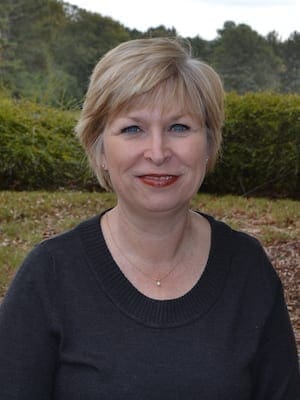Thanksgiving has always been one of my favorite holidays. I love the family gatherings, the big meal with too much food to eat and the long afternoon of football games and napping.
Like most Americans, I heard the story of the Pilgrims and the Indians and the dinner they shared together so I knew a little of the popular history of the holiday. Yet, I never gave much thought to Thanksgiving as a legal holiday until I recently read the official proclamation that established Thanksgiving Day.
That proclamation was issued on Oct. 3, 1863, by Abraham Lincoln. In it he invited “fellow citizens in every part of the United States, and also those who are at sea and those who are sojourning in foreign lands, to set apart and observe the last Thursday of November next, as a day of Thanksgiving and Praise to our beneficent Father who dwelleth in the Heavens.”
It is hard to imagine Lincoln calling for a national day of Thanksgiving given the events that were occurring in the nation. In 1863, the Civil War was at its ugliest. In the early days of July, more than 51,000 American soldiers died on the battlefield at Gettysburg. On July 4, the city of Vicksburg, Miss., finally surrendered to Ulysses Grant after months under siege. There were some 35,000 casualties. In September, there were 34,000 more casualties at the Battle of Chickamauga Creek in Georgia.
Certainly 1863 would not appear to have been the kind of year that would prompt a grateful spirit or the desire to set apart a day for thanksgiving. So what prompted President Lincoln to declare the last Thursday in November as a special day for all the peoples of this country?
Apparently, Lincoln’s Thanksgiving Proclamation was prompted by Sarah Josepha Hale, editor of Godey’s Lady’s Book. Passionate about the need for a day of thanksgiving, Sarah spent 40 years writing congressman and state governors, lobbying presidents, and writing editorials in hopes of creating an official holiday of thanks. So who was this woman who worked so hard to make Thanksgiving Day a reality?
Sarah Hale was born on Oct. 24, 1788, in Newport, N.H. She received a solid education and continued to study even after her marriage in 1813 to a lawyer named David Hale. David died in 1822, leaving his young wife with five children, four of whom were under the age of 7.
In order to support her family, Sarah turned to the literary world. She published a book of poems, The Genius of Oblivion, and several years later, released her first novel, Northwood. Her best-known literary contribution is the nursery rhyme “Mary Had A Little Lamb,” which was first published in 1830.
In 1827, she became the editor of Ladies’ Magazine. The magazine contained poetry, short stories, and editorials, much of which was written by Sarah herself. Her hope was that the magazine would help to further the education of women. She continued on as editor until 1836 when she was invited to be the editor of Godey’s Lady’s Book, a magazine that had the largest circulation and was the most popular women’s magazine of the era.
Sarah used both of these magazines in her campaign for Thanksgiving as a national holiday. She penned countless editorials on the topic and wrote thousands of letters to government officials.
Sarah’s dream was to establish a holiday to be celebrated nationwide. It would be a holiday that served to bind the people of the country together and allow them to participate all on the same day in rejoicing and giving thanks. She believed a nationwide day of thanksgiving would help to ensure peace, prosperity and progress in the United States. Even with the coming of the Civil War, she continued to be committed to this cause and never stopped calling for the establishment of this national holiday.
Some states and territories adopted Sarah’s dream and set aside the last Thursday of November as a day of celebration. But it was not until October of 1863 that her dream was fully realized. Lincoln’s proclamation called for all the states and all the peoples of the country to participate, and all the states, with the exceptions of Virginia and Vermont, complied.
Although most Americans do not know Sarah Josepha Hale’s name, we owe to her our gratitude. Her commitment and her continual effort in making Thanksgiving a national holiday have provided for us as Americans and as Christians, a day set aside for us all to give thanks.
Pam Durso is associate director of the Baptist History & Heritage Society in Brentwood, Tenn.

